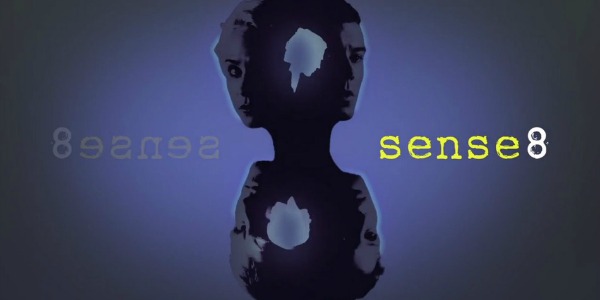
Adding to their ever expanding repertoire of incredible original series, Netflix’s Sense8 is the latest offering from the Wachowskis, of The Matrix fame. Following eight very distinct individuals from across the globe that become telepathically connected, Sense8 is far more than your average sci-fi tinged drama. Although the near-future, Orwellian dynamic which drives the narrative is present and wonderfully written, this aspect of the series refreshingly takes a backseat in order to shift the focus on a few things which seem much more relatable; humanity and empathy.
After their minds become linked to one another during an event called a ‘Birth‘, each member of this group, or ‘Sensate’, becomes sensitive to the emotions of the others within said group. They also gain the ability to communicate telepathically, sharing skills and traits. Due to the incredible amount of diversity between the characters, this makes for some very interesting cross-cultural interactions, as well as an exploration of each individual on their own terms.
One such example is Nomi Marks, a trans-woman played by Jamie Clayton, who herself is transgender. This is one example of the, quite frankly, welcome cast diversity which unfortunately has caused rumblings of dissent amongst some critics gluttonous on a diet of stale, straight White ‘bread and butter’. From the very first episode, the LGBT community is celebrated, not just because of their difference, but because of their humanity, something we all have in common. Love is at the centre of Nomi’s character and this is shown, rather graphically, in a gloriously viscous cascade of sexual liberty and freedom. Interestingly, Nomi’s character not only deals with typical day-to-day homophobia, but also highlights transphobia within the LGBT community itself. Being an original series on Netflix, Sense8 has the ability to tackle these issues without fear of the dreaded watershed and, as such, has done more to eliminate stigma and foster understanding in its opening episode than any other ‘regularly scheduled programming’ has in more years than I’d care to count.
The series is a truly cultural smorgasbord; not only does it deal with LGBT issues, but the diversity of the cast extends to characters from all over the world, examining and dealing with cultural issues and taking audiences out of their respected comfort zones whilst staying true to relatable situations. One such example is of Kala Dandekar, played by Tina Desai. University-educated, a devout Hindu and engaged to a man she does not love, Kala attempts to deal with the cultural expectations of life in India. Likewise, Riley Blue, played by Tuppence Middleton, is an Icelandic DJ living a shabby chic, drug-fuelled lifestyle in London. This romanticised ideal is instantly deflated by a ‘Visit‘ from native Kenyan bus-driver Capheus, played by Aml Ameen, who, upon linking with Riley, believes he is in a prison but becomes enthused by the opportunity to try real English tea. Capheus himself acts as a window into the daily life of contemporary Kenyans, dealing with the ravaging affects of AIDS, gang-related street crime and political corruption.
Many different aspects of a variety of cultures are examined, such as those through Lito Rodriguez, played by Miguel Ángel Silvestre. A closeted Mexican actor famous for testosterone-fuelled action films, Lito lives a life in secrecy for fear of his reputation in a society where machismo and being a ‘real’ man are everything. In fact, one of the best moments in the series highlights where these two concepts overlap; after filming an action sequence, the director advances on Lito saying that watching it gave him an erection. Colourful idioms aside, the director, in his burst of testosterone-driven excitement, unintentionally highlights the hypocrisy of male expectations in contemporary society; extreme shows of ‘manliness’ often border on the homoerotic.
The series is full of symbolism and metaphor, though it is subtle enough to be present and engaging without being distracting or contrived. There is so much to talk about in Sense8, much more than I can do justice to in 700 words. My recommendation would be to watch it immediately and take part in what is an intriguing, and often humbling, diverse cultural examination of humanity. Not to mention a tense and well-written sci-fi drama that pulls no punches.
